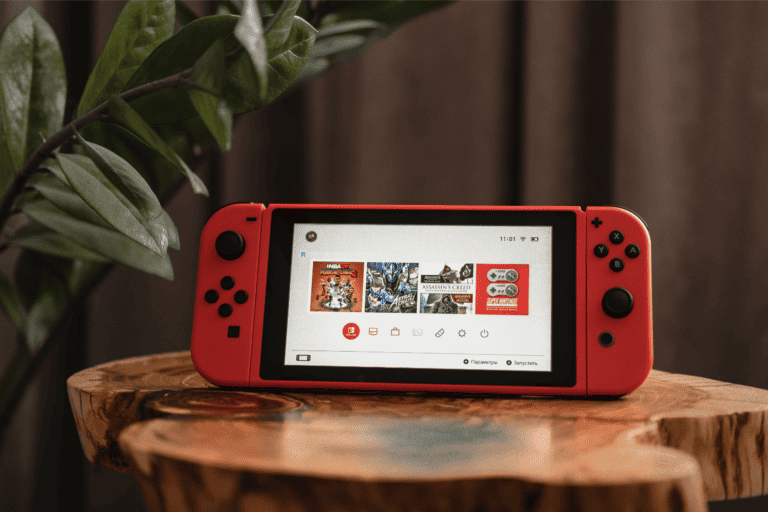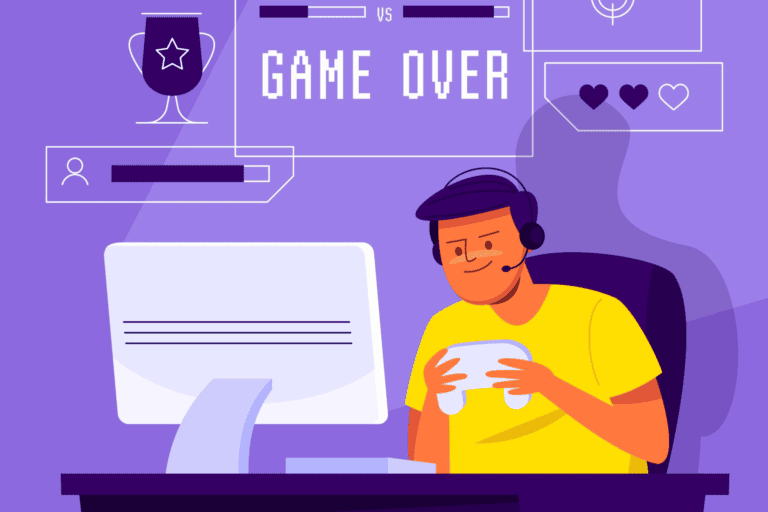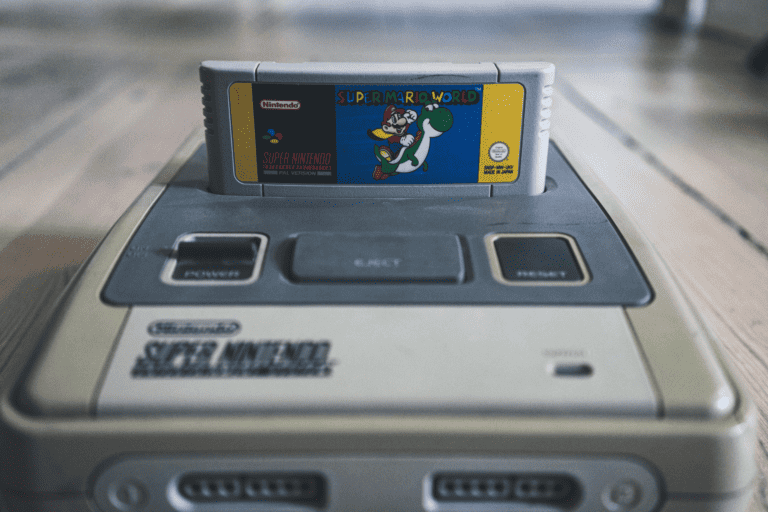
Can game consoles get viruses?
Game consoles are specialized computers designed to run video games and typically include a central processing unit (CPU), memory, storage, and a graphics processing unit (GPU). However, unlike computers, game consoles have a closed system, meaning users cannot install third-party software or modify the operating system (OS).
Despite this, game consoles can still be vulnerable to viruses, as they rely on software and apps to function, which can potentially be infected with malware. This susceptibility is due to their increased connectivity to the internet, online games, and the use of software and apps that can potentially be infected with malware. Malicious individuals could also educate time and resources to develop malware for specific gaming consoles.
How are game consoles vulnerable to viruses?
As game consoles increasingly rely on the internet, the likelihood of them being targeted by cybercriminals increases. The vulnerability is a result of outdated security measures compared to other internet-connected devices. For example, older game consoles, such as the PlayStation 3, no longer receive security updates, making them more susceptible to malware attacks.
Additionally, others have a less secure web browser compared to computers, leaving them vulnerable to web-based attacks such as drive-by downloads. Game consoles can also be susceptible to viruses through the use of modding or hacking tools. While they’re not inherently malicious, they can be used to install unauthorized software or circumvent security measures, exposing the game console to viruses and other types of malware.
Methods of virus transmission to game consoles
Viruses can be transmitted to game consoles in several ways, including;
- Embedding viruses in-game mods downloaded from third-party websites or forums.
- Disguising viruses as software updates or game demos downloaded from unofficial sources.
- Phishing attacks through fake websites or emails that ask for personal information.
- Viruses from seemingly harmless sources such as USB or external hard drives.
- Malicious ads on gaming websites or in-game advertising networks can infect the console when clicked.
- Social engineering attacks, where hackers manipulate gamers into revealing personal information or installing malware on their consoles.
- Exploiting vulnerabilities in the console’s software or operating system.
- Using cheat codes or trainers that contain viruses or malware.
- Sharing game files or pirated copies of games that contain viruses.
- Hijacking game servers to distribute malware to connected players.
- Using fake gaming tools or applications that claim to enhance the gaming experience but are malware.
Risks of having a virus on your game console
While uncommon, a virus-ridden gaming console poses a risk to your gameplay and personal security. Here’s how:
Impact on performance
Viruses on game consoles can cause significant performance issues, impacting the console’s speed, responsiveness, and overall gaming experience. Malware can consume the game console’s processing power, leading to slow load times, lagging, freezing, or crashing. These issues can frustrate the gameplay and make gaming less enjoyable.
Viruses can also damage the console’s hardware, causing permanent harm and reducing lifespan. Plus, they can affect other devices on the network, such as computers or smartphones. Malware can spread from the console to other devices through shared internet connections, compromising security and privacy. Thus, if one device is infected, it can put the entire network at risk. Therefore, it is crucial to isolate the console from other devices on the network and use separate passwords for each device to minimize the risk of infection.
Even more riskier, having a virus on a game console can open the door to cyber attacks, such as distributed denial of service (DDoS) attacks. Hackers can take control of the infected game console and use it as a botnet to launch attacks on websites or servers, causing them to crash or slow down. This can affect not only the gamer but also other internet users. Therefore, users should be vigilant about the security of their consoles and take immediate action if they suspect an infection.
Impact on personal information
Viruses on game consoles can also lead to severe consequences for personal information security. Cybercriminals can exploit vulnerabilities caused by viruses in a game console and cause potential loss of personal information. Malware can be programmed to collect sensitive data such as login credentials, credit card information, or unique identification numbers.
Scammers can use this information to steal identities, commit financial fraud, or sell the data on the dark web. In severe cases, you may lose access to your gaming accounts. Therefore, be cautious of phishing scams, suspicious links, or emails, and avoid sharing personal information with strangers during online gaming.
It is also essential to keep an eye out for any suspicious activity, such as unauthorized purchases, and report them immediately. If you suspect your gaming console is affected, we advise that you disconnect it from the internet and seek professional assistance to prevent further damage to personal information.
Xbox and viruses: All your questions answered
We address the common questions and misconceptions surrounding Xbox consoles and viruses
Can an Xbox get a virus?
No, Xbox consoles cannot get viruses in the same way that computers do. Unlike computers, Xbox consoles run on a highly specialized operating system that limits their vulnerability to traditional viruses and malware. Microsoft has robust security measures to safeguard the Xbox ecosystem, significantly reducing the risk of viruses.
Can Xbox consoles be hacked?
While Xbox consoles are designed with security in mind, no system is entirely impervious to hacking. However, the likelihood of an average Xbox console being hacked is extremely low. Microsoft regularly releases system updates to address any potential vulnerabilities. Thus, as long as you follow best practices like enabling two-factor authentication and keeping your console’s software up to date, the risk of hacking remains minimal.
Can Xbox get a virus through USB?
Xbox consoles are generally safe from viruses spread through USB drives. The console has strict protocols for scanning and verifying external storage devices, reducing the risk of malware transmission. Still, it’s crucial to exercise caution when using USB drives obtained from untrusted sources, as they may contain malicious files or software that could potentially compromise the system.
How do you know if your Xbox has a virus?
Since Xbox consoles have a significantly lower risk of contracting viruses compared to traditional computers, it’s highly unlikely for users to encounter such issues. If you suspect any unusual behavior or performance issues, it’s worth exploring other potential causes, such as faulty hardware, outdated software, or connectivity problems, before assuming the presence of a virus. If concerns persist, contact Xbox support or seek professional assistance.
PlayStation and viruses: All your questions answered
We address the common questions and misconceptions surrounding PlayStation consoles and viruses
Can a PS4 get a virus?
Similar to Xbox consoles, PS4 systems are highly secure and have a specialized operating system that reduces the risk of traditional viruses. Thus, the chances of a PS4 getting a virus are incredibly low. Sony continuously updates the PlayStation’s firmware to patch any vulnerabilities, ensuring a safe gaming experience for its users.
Has the PS4 been hacked yet?
The PlayStation 4 has experienced limited instances of hacking throughout its lifespan due to the considerable resources in safeguarding the gaming platform and prompt addressing of any security concerns through regular firmware updates. Still, practice good security habits such as enabling two-factor authentication, using strong passwords, and keeping their system software up to date to minimize the risk of hacking.
Can a PS5 get a virus?
The PlayStation 5, like its predecessor, benefits from robust security measures implemented by Sony. PS5’s specialized operating system and regular firmware updates help minimize the risk of viruses. By adhering to best security practices, such as keeping the system software up to date and avoiding untrusted sources, users can maintain a secure gaming experience on their PS5 console.
Can a PS4 controller get a virus?
Since controllers lack an operating system, they cannot contract viruses. However, it’s essential to connect controllers to trusted devices and avoid using third-party accessories that may compromise the security of the console.
Tips for safe gaming practices
Here are game safety tips that can help you to avoid getting a virus on your console and continue to function at optimal levels:
- Only download games from official sources or reputable platforms
- Keep game console and software up to date with the latest security patches and updates
- Be cautious of suspicious links or emails containing viruses
- Avoid sharing personal information or login credentials with other players or online communities
- Use strong and unique passwords for gaming accounts and change them regularly
- Use antivirus software designed for game consoles to provide additional protection against malware and viruses
- Use two-factor authentication for gaming accounts to add an extra layer of security
- Enable parental controls to restrict access to inappropriate content or limit online interactions with strangers
- Be cautious when using public Wi-Fi networks, as they may not be secure and can expose personal information to cybercriminals
- Avoid using mods or cheats from untrusted sources, as they may contain malware or spyware
- Regularly backup games save data to avoid losing progress or personal information in case of a virus or other security incident.
Final words
The risks of viruses and other cyber threats are real and can lead to serious consequences, including identity theft and financial fraud. To mitigate these risks, adopt safe gaming habits, such as downloading games from official sources, avoiding suspicious links or emails, and using strong and unique passwords.
Keeping the console updated with the latest security patches and software updates and using antivirus software can provide additional protection against known vulnerabilities and exploits.




Leave a Comment